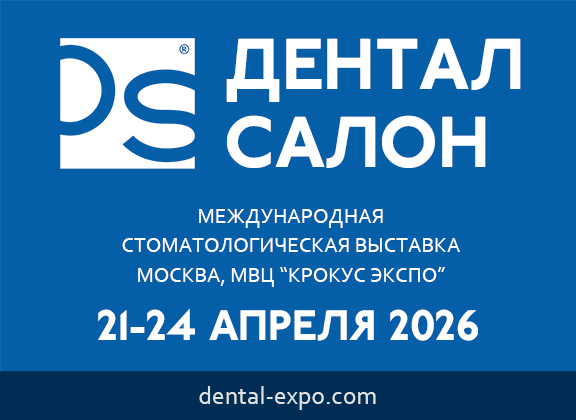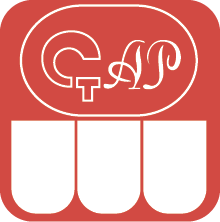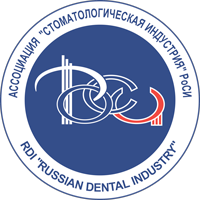DOI:
10.37988/1811-153X_2023_2_38Characteristics of the oral microbiota in patients with diseases of mouth mucosa after new coronavirus infection (COVID-19)
Downloads
Abstract
Even asymptomatic forms of COVID-19 in the long term after infection can have adverse consequences, primarily associated with a violation (often weakening) of the immune system, including local oral immunity. In maintaining the necessary balance of immune homeostasis of the human body, a significant role is given to the state of the human microbiome. The aim of the work was to study the species and quantitative composition of the oral microbiota in patients with diseases of the oral mucosa in the post-COVID period.Materials and methods.
We examined 48 patients who applied for dental care for exacerbation of diseases of the oral mucosa, such as lichen planus (LP) and recurrent aphthae. Depending on the past history of COVID-19, patients were divided into 2 groups: I — 26 patients who recovered from a new coronavirus infection; II — 22 patients without a history of COVID-19.
Results.
One of the dominant in terms of quantitative indicators of microbial contamination and the frequency of detection in all patients was the association of Streptococcus spp. with Staphylococcus aureus against the background of a decrease in the number of Lactobacillus spp. The average concentration of S. mutans (6.09±0.94 lg CFU/ml) in group I was significantly higher than in group II (4.36±0.80 lg CFU/ml; p<0.001). S. mitis occurred in both groups, but in group I 1.7 times more often, in 46% of cases, than in group II (27%). In 55% of patients of group I, S. aureus was isolated on average in the amount of 3.09±2.98 lg CFU/ml, which is significantly more than in patients of group II (1.09±1.38 lg CFU/ml; p<0.05) isolated in 46% of cases. In patients of group I, the highest increase in the number of S. mutans was observed than in group II (4.67±1.83 and 3.45±1.12 lg CFU/ml, respectively), and the incidence rate was lower by 7% in group I group (93 and 100%, respectively). In more than 1/2 patients with LP after COVID-19 (group I), a diagnostically significant increase in contamination with Candida spp. — 3.09±2.11 lg CFU/ml.
Conclusion.
The obtained results indicate negative trends in the oral health of the examined patients with diseases of the oral mucosa in the post-COVID period, associated with significant changes in the composition of the oral microbiota.
Key words:
COVID-19, local immunity, postcovid period, diseases of the oral mucosa, oral microbiotaFor Citation
[1]
Rabinovich I.M., Gileva O.S., Akmalova G.M., Kabirova M.F., Gimranova I.A., Urgunaliev B.K., Aznagulov A.A., Hasanova G.F., Gazizullina G.R., Chernysheva N.D., Epishova A.A. Characteristics of the oral microbiota in patients with diseases of mouth mucosa after new coronavirus infection (COVID-19). Clinical Dentistry (Russia). 2023; 26 (2): 38—43. DOI: 10.37988/1811-153X_2023_2_38
References
- Trypsteen W., Van Cleemput J., Snippenberg W.V., Gerlo S., Vandekerckhove L. On the whereabouts of SARS-CoV-2 in the human body: A systematic review. PLoS Pathog. 2020; 16 (10): e1009037. PMID: 33125439
- Gileva O.S., Libik T.V., Gibadullina N.V., Sivak E.Yu., Gavrilenko M.S., Beleva N.S., Zadorina I.I. Key dental challenges during COVID-19 pandemic: oral health monitoring in patients with chronic oral mucosal diseases. Stomatology. 2021; 6—2: 8—15 (In Russian). eLIBRARY ID: 47698607
- Malkova A., Kudryavtsev I., Starshinova A., Kudlay D., Zinchenko Y., Glushkova A., Yablonskiy P., Shoenfeld Y. Post COVID-19 syndrome in patients with asymptomatic/mild form. Pathogens. 2021; 10 (11): 1408. PMID: 34832564
- Soffritti I., D.‘Accolti M., Fabbri C., Passaro A., Manfredini R., Zuliani G., Libanore M., Franchi M., Contini C., Caselli E. Oral microbiome dysbiosis is associated with symptoms severity and local immune/inflammatory response in COVID-19 patients: a cross-sectional study. Front Microbiol. 2021; 12: 687513. PMID: 34248910
- Cagna D.R., Donovan T.E., McKee J.R., Eichmiller F., Metz J.E., Albouy J.P., Marzola R., Murphy K.R., Troeltzsch M. Annual review of selected scientific literature: A report of the Committee on Scientific Investigation of the American Academy of Restorative Dentistry. J Prosthet Dent. 2019; 122 (3): 198—269. PMID: 31405523
- Gileva O.S., Feldblum I.V., Libik T.V., Baydarov A.A., Smetanin D.G., Chuprakova E.V., Sivak E.Yu., Syutkina E.S. Key dental challenges during the COVID-19 pandemic: an interdisciplinary platform. Pediatric Dentistry and Profilaxis. 2021; 1 (77): 61—65 (In Russian). eLIBRARY ID: 45574240
- Wilks J., Golovkina T. Influence of microbiota on viral infections. PLoS Pathog. 2012; 8 (5): e1002681. PMID: 22615558
- He J., Li Y., Cao Y., Xue J., Zhou X. The oral microbiome diversity and its relation to human diseases. Folia Microbiol (Praha). 2015; 60 (1): 69—80. PMID: 25147055
- Bassis C.M., Erb-Downward J.R., Dickson R.P., Freeman C.M., Schmidt T.M., Young V.B., Beck J.M., Curtis J.L., Huffnagle G.B. Analysis of the upper respiratory tract microbiotas as the source of the lung and gastric microbiotas in healthy individuals. mBio. 2015; 6 (2): e00037. PMID: 25736890
- Lynch S.V. Viruses and microbiome alterations. Ann Am Thorac Soc. 2014; 11 Suppl 1: S57—60. PMID: 24437408
- Soltani S., Zakeri A., Zandi M., Kesheh M.M., Tabibzadeh A., Dastranj M., Faramarzi S., Didehdar M., Hafezi H., Hosseini P., Farahani A. The role of bacterial and fungal human respiratory microbiota in COVID-19 patients. Biomed Res Int. 2021; 2021: 6670798. PMID: 33681368
- Hussain I., Cher G.L.Y., Abid M.A., Abid M.B. Role of gut microbiome in COVID-19: An insight into pathogenesis and therapeutic potential. Front Immunol. 2021; 12: 765965. PMID: 34721437
- Xiang Z., Koo H., Chen Q., Zhou X., Liu Y., Simon-Soro A. Potential implications of SARS-CoV-2 oral infection in the host microbiota. J Oral Microbiol. 2020; 13 (1): 1853451. PMID: 33312449
- Marouf N., Cai W., Said K.N., Daas H., Diab H., Chinta V.R., Hssain A.A., Nicolau B., Sanz M., Tamimi F. Association between periodontitis and severity of COVID-19 infection: A case-control study. J Clin Periodontol. 2021; 48 (4): 483—491. PMID: 33527378
- Yakovlev S.V., Shcheka D.V., Suvorova M.P., Sergeeva E.V., Cherkasova N.A. Infective endocarditis of staphylococcal etiology: clinical process and antibacterial therapy. Antibiotics and Chemotherapy. 2009; 5—6: 59—64 (In Russian). eLIBRARY ID: 21249242
- Chesnokov V.A., Chesnokova M.G. The mycobiota of tunica mucosa of mouth and surface of removable acrylic laminar dental prosthesis under orthopedic rehabilitation. Russian Clinical Laboratory Diagnostics. 2016; 2: 126—128 (In Russian). eLIBRARY ID: 25792526
- Tsarev V.N. Microbiology, virology, immunology. Moscow: GEOTAR-Media, 2019. Pp. 135—140 (In Russian).
- de Oliveira G.L.V., Oliveira C.N.S., Pinzan C.F., de Salis L.V.V., Cardoso C.R.B. Microbiota modulation of the gut-lung axis in COVID-19. Front Immunol. 2021; 12: 635471. PMID: 33717181
- Sampson V., Kamona N., Sampson A. Could there be a link between oral hygiene and the severity of SARS-CoV-2 infections? Br Dent J. 2020; 228 (12): 971—975. PMID: 32591714
Downloads
Received
March 28, 2023
Accepted
June 7, 2023
Published on
July 6, 2023










